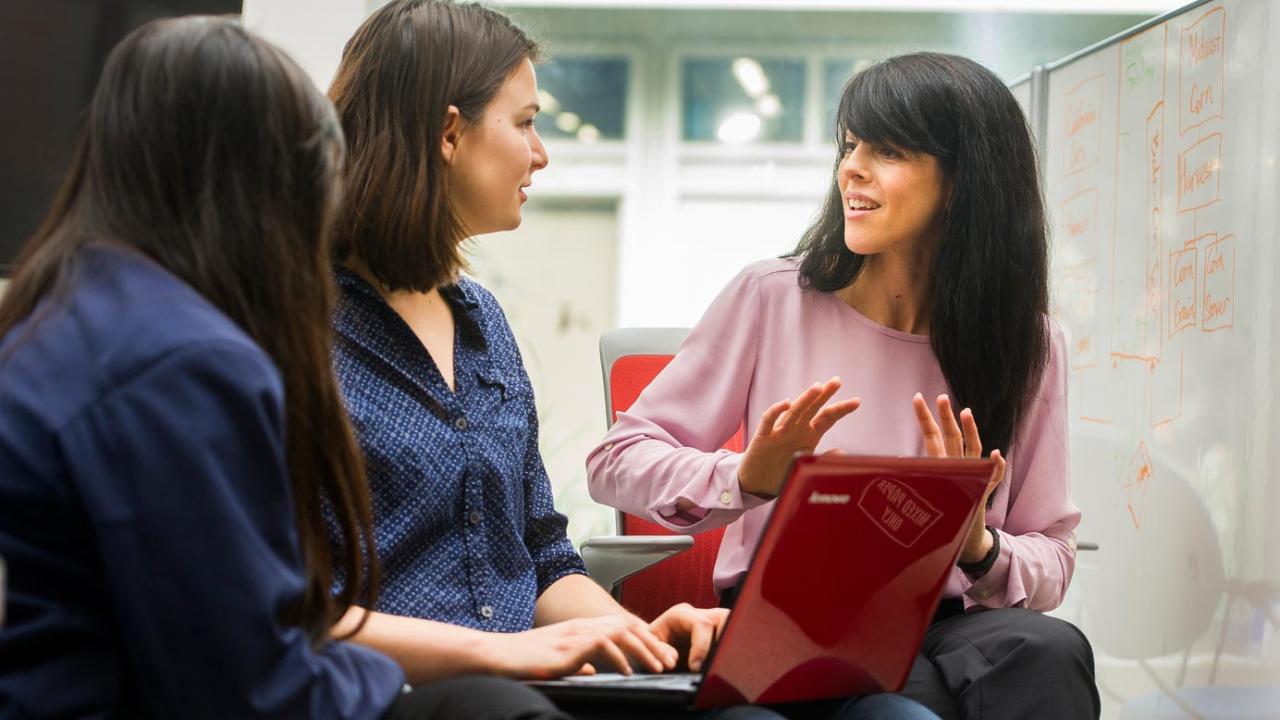Quick Summary
- Professors nurture the next generation
- They say find a field in which graduate student candidate excels and has passion
- Also, look for the right match with a faculty mentor
Who are the graduate student mentors, trainers and coaches? Why, they are the UC Davis faculty. They are the ones who know what it takes to get that master’s or doctoral degree. They did it themselves, and now they are nurturing the newest academic generation. Read their advice about choosing a graduate program.
Agricultural sciences
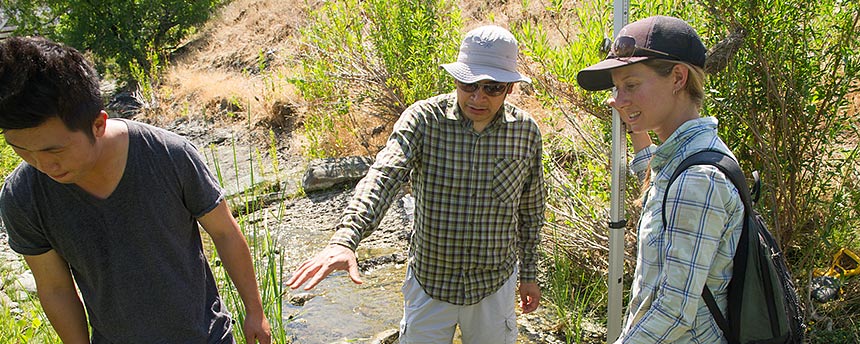
Graduate school should be a personal decision. You should do it when the time is right, so it will be something you really want to do. Some decide to work first. You need to match up with the right faculty, find a thing that you like and something you’re good at. That can be a difficult combination. It’s valuable to know what you like and what you don’t. That’s why this experience—collecting field data—is so valuable.
The arts
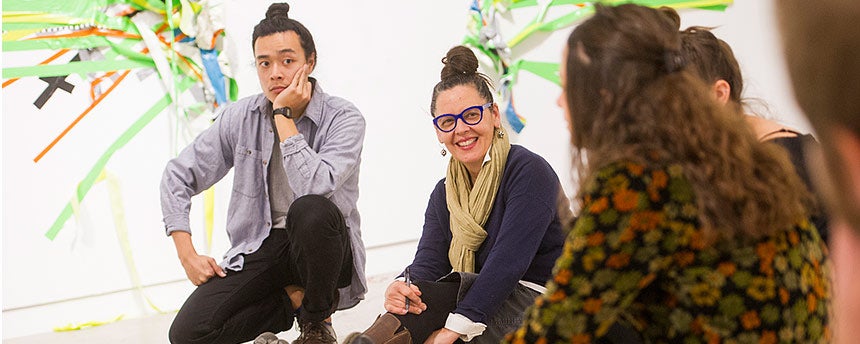
While the Master of Fine Arts is the credential for teaching at the university level, we discourage students from pursuing a degree for this reason. One should come to our program to deepen their practice. The best preparation one can do is to make strong, original work over a sustained period of time and document it well. We are interested in meeting you at a juncture in your creative practice that is informed and engaged with ideas and questions surrounding contemporary art and how it functions in the world.
Biological sciences
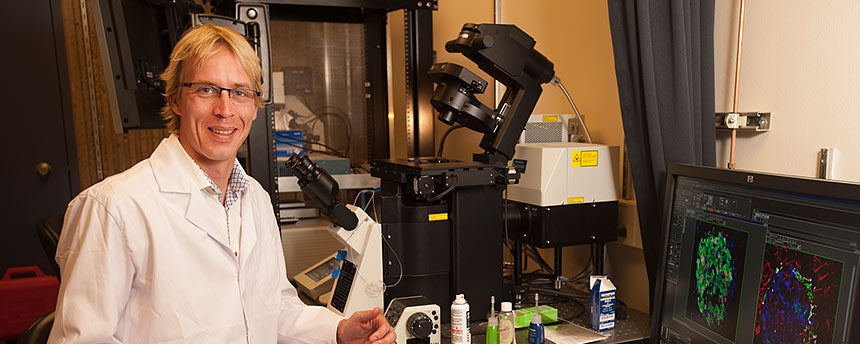
Be sure to think about all aspects of the graduate experience: personal compatibility with the research team, developing a solid scientific plan, building a strong repertoire with the principal investigator. Talk to people in the lab for warning signs to be fully informed. Ask questions, including, “Is it a fit for you?”
Sean Collins, assistant professor of microbiology and molecular genetics
In deciding on a lab to join, make sure the science grabs you, but also consider if you will get along with your future mentor. You will be working closely with him/her for a long time.
Mark Huising, assistant professor of neurobiology, physiology and behavior
Engineering
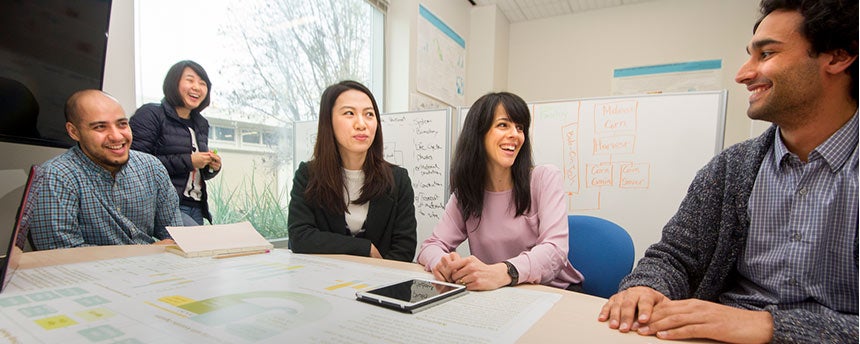
I would encourage any prospective graduate student to not worry so much about the career trajectory. Focus on the field of study that captures your interest and will fuel your passion and effort throughout that career.
James Shackelford, professor of chemical engineering and materials science
Reach out directly to professors in the program that interests you. Be sure you know what they research and teach, and if you don't hear back, then reach out again. Faculty are busy people, but we're always interested in future students ... so don't take silence as disinterest.
Alissa Kendall, associate professor of civil and environmental engineering
Lose your undergraduate obsession with course grades and student rankings. You must do well in your courses, but your most important job is to impress some faculty member with your abilities and passion. Start doing research with someone. Great grades will never make up for lack of attachment, and productive research will more than compensate for “just decent” grades.
Find the subject you're truly passionate about, and then think about graduate studies as the time you can work exclusively on that subject, and enjoy innovating and contributing to that field. It's really hard to have a similarly ideal environment after you leave the school!
Omeed Momeni, assistant professor of electrical and computer engineering
It's more important to choose an adviser than a school: It does no good to attend a top-ranked institution if the faculty doesn't include anybody with whom you'll be able to work well.
William Ristenpart, professor of chemical engineering and materials science
Humanities and social sciences
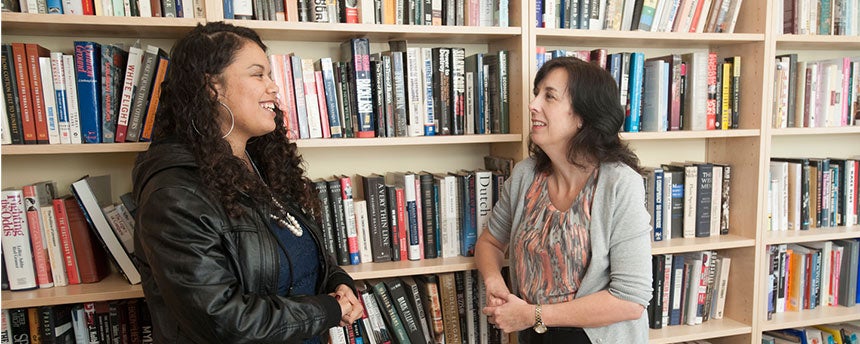
This is an uncertain time to pursue a doctorate in literature because the academic job market is not strong. It is also an exciting, potentially transformative time. More and more students are applying to literature programs not to be professors, but to learn how to be strong researchers in textual analysis and excellent teachers with non-profits, government and educational administration.
…
The best preparation for graduate school is doing a variety of research experiences and developing your research projects. It takes practice, but you will learn from multiple attempts to put together ways of answering critical questions.
…
When I was hired at UC Davis, the then-chair of the English department said to me that I was doing a research project that could not have even been imagined as part of literary studies when he was in graduate school. The hope is that literary study continues to be re-tooled in ways that push the questions we ask and the knowledge that we produce.
Being a graduate student in the humanities is a balancing act. To succeed, you make the transition from being an excellent student — fluent in the big ideas and methodologies in your field — to becoming an excellent student who is also an original and creative scholar in your own right. It's important to go in with pragmatic strategies to manage your time, but you should be ready for an intellectual balancing act as well. You need to divide your energy and attention between your academic work — reading and writing for seminars — with exam preparation, teaching, and, eventually, your own research.
The market for history professors has not been good because enrollments are declining. If you go into a graduate program, you need to understand that you can use your Ph.D. for other things than being a professor. Do not put all your eggs in one academic basket. Some of our recent alums work for history museums, state government, the National Park Service. Three of our Ph.D.s work at the California Social-Science History Project, helping K-12 teachers improve their history lessons.
…
We look for people who have some research experience so they know what they are getting into — if they’ve done an honors thesis or independent study project where they have used primary sources.
…
Like in the sciences, graduate studies in history is like an apprenticeship — you sign up with a particular person to learn the craft. Choose a program that has depth in your area of focus, so if that professor is not a good fit, you can switch.
Mathematics and physical sciences
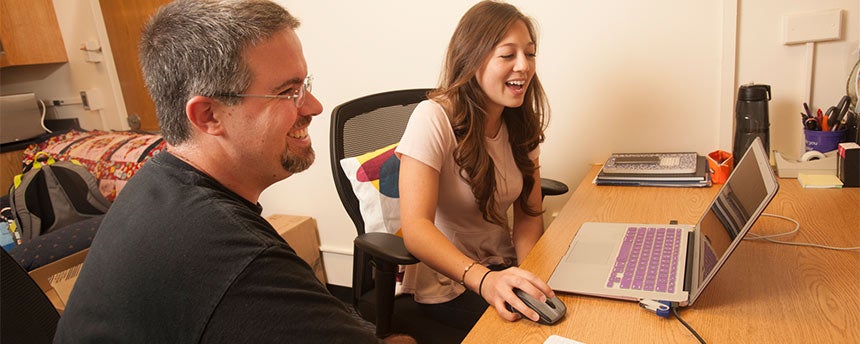
One thing students sometimes don't know is that in most sciences, it shouldn't cost you money to go to graduate school. Between tuition assistance and teaching assistantships, you're not going to end up in debt, especially if you're a California resident. Graduate admissions are very different than undergraduate admissions because your application is being read by department faculty, not by an admissions official. Your application shouldn't be vague. It should really be targeted to specialists in your field.
I always appreciate if students can explain why they are motivated to apply to graduate school, and also if they have good scientific questions they want to pursue. These things can change, obviously, but the fact they are thinking about them as a prospective student is important. One of the great strengths of UC Davis is the easy exchange of ideas between different fields. If you want to do something outside of your expertise, there's always somebody you can ask.
The two things I always tell students are that you have to pursue a research project that is compatible with your interests and you have to find a research adviser who is passionate about the projects in their lab.
…
If someone really wants to work with me, the approach that makes the best impression is to show you have some idea of what we do. I love to answer questions about our research.
…
There isn't one simple recipe for getting into a graduate program. All you can do is present yourself in the best light possible. I do think it is a good idea for students to make connections with people in the department ahead of time, so their name rings a bell when they apply.
